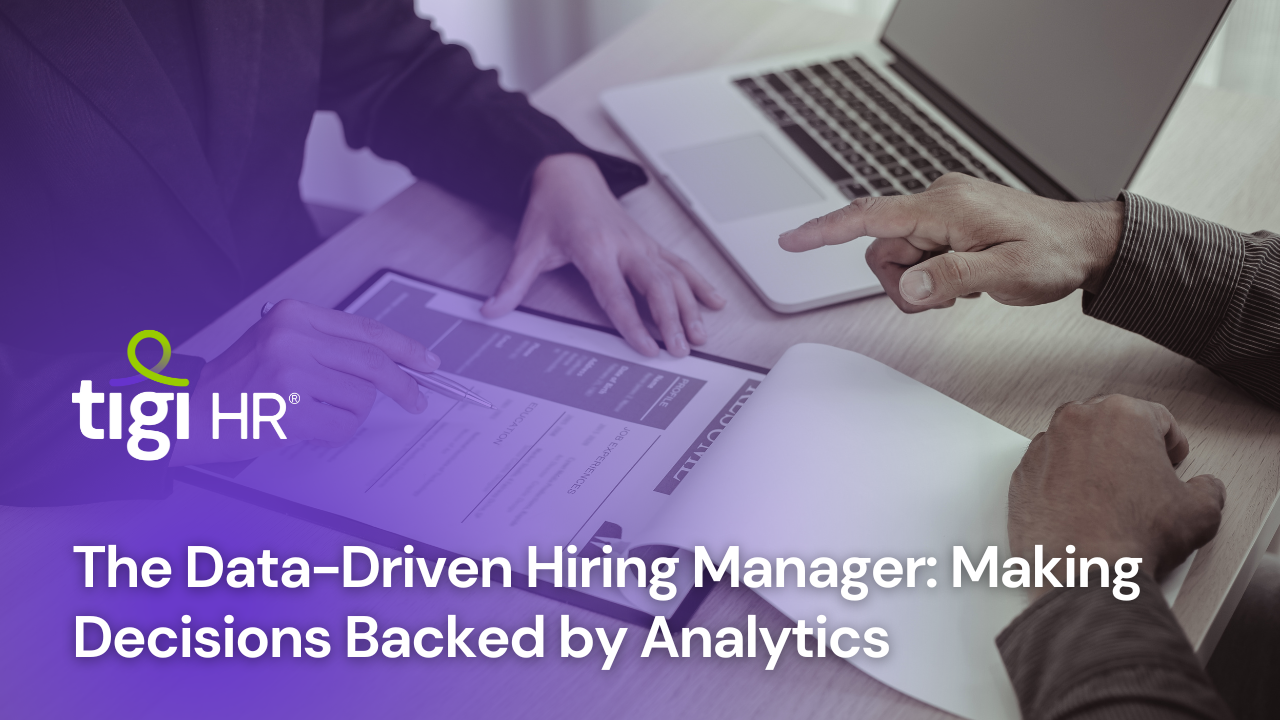In the era of technological advancement, data-driven decision-making has become a cornerstone of success across various industries. The realm of human resources and talent acquisition is no exception. Enter the data-driven hiring manager, an individual armed with powerful analytics tools and insights to guide recruitment processes. In this article, we explore the transformative role of data analytics in the recruitment landscape, highlighting the benefits, strategies, and authentic statistics that underscore its effectiveness.
The Power of Data in Hiring
Traditional hiring processes often rely on subjective judgments and gut feelings, which can lead to biases and inconsistent outcomes. The emergence of data analytics has injected objectivity and efficiency into the recruitment cycle. By leveraging data, hiring managers can make informed decisions that align with business goals and increase the likelihood of finding the right candidate.
Benefits of Data-Driven Hiring
- Reduced Bias: Data-driven hiring minimizes unconscious biases that can unconsciously influence decisions. Algorithms and analytics focus on skills, qualifications, and relevant experience, ensuring fairness and equal opportunities.
- Enhanced Predictive Analysis: Advanced analytics can forecast a candidate’s potential performance and tenure within the organization. This aids in making long-term hiring decisions that align with the company’s growth strategy.
- Improved Candidate Fit: Analytics help match candidates not only to job requirements but also to the organization’s culture and values. This alignment significantly enhances job satisfaction and retention rates.
Statistics:
- According to a study by LinkedIn, 71% of companies believe that people analytics – data-driven insights about their workforce – is a high priority.
- The Harvard Business Review found that organizations that use data-driven recruitment methods are three times more likely to improve their talent acquisition performance.
Strategies for Implementing Data-Driven Hiring
- Collecting Relevant Data: To make informed decisions, you need relevant data. This includes information about past recruitment efforts, candidate performance, and employee turnover. Utilize applicant tracking systems (ATS) and performance management tools to gather this data.
- Defining Key Metrics: Identify key performance indicators (KPIs) that matter most to your organization. Whether it’s time-to-fill, cost-per-hire, or quality of hire, these metrics provide actionable insights into your recruitment process’s effectiveness.
- Utilizing Predictive Analytics: Leverage predictive analytics to identify trends and patterns in your data. These insights can help you anticipate talent shortages, adjust your sourcing strategies, and even predict potential turnover.
Statistics:
- Deloitte’s Global Human Capital Trends report revealed that 64% of organizations are actively building predictive analytics models to forecast workforce trends.
- The Society for Human Resource Management (SHRM) found that organizations using workforce analytics were more likely to have a competitive advantage in recruiting.
Implementing Ethical and Fair Analytics
While data-driven hiring offers numerous advantages, it’s crucial to implement analytics ethically and fairly. Avoid using data that perpetuates biases or unfairly disadvantages certain groups. Regularly audit and refine your analytics models to ensure they align with diversity and inclusion goals.
Statistics:
- A study published in the Proceedings of the National Academy of Sciences found that algorithms used in hiring can perpetuate bias if they are trained on biased data.
Challenges and Future Outlook
While data-driven hiring is transformative, it’s not without challenges. One major hurdle is the interpretation of data – hiring managers must be equipped to analyze and act on the insights effectively. Additionally, data privacy and security concerns necessitate robust protection measures.
Looking ahead, the integration of artificial intelligence (AI) and machine learning (ML) in recruitment analytics promises to further refine decision-making. These technologies can process vast amounts of data to identify patterns and trends that human analysis might overlook.
Conclusion on Data-Driven Hiring Manager
The data-driven hiring manager is a pivotal figure in modern talent acquisition, ushering in an era of strategic and objective decision-making. As organizations recognize the power of analytics in transforming their recruitment processes, leveraging data to reduce biases, predict outcomes, and match candidates effectively has become imperative. By adopting data-driven hiring practices, businesses can gain a competitive edge, enhance candidate experiences, and build a workforce poised for success in the digital age. The future of recruitment is undoubtedly intertwined with data analytics, and those who harness its potential stand to reap rewards that extend far beyond the traditional hiring horizon.
Also Check: Diversity Recruitment Strategies





